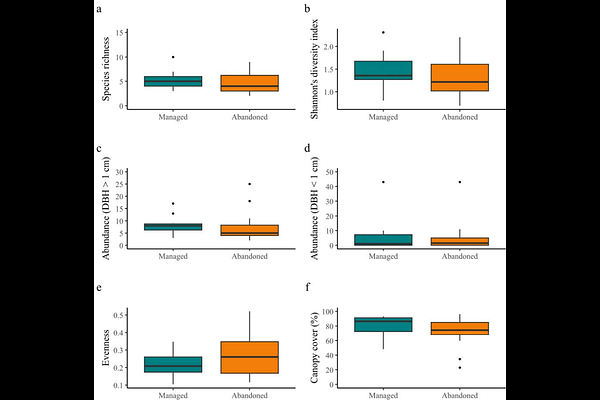Open-land-derived agroforestry and effects of abandonment of management of the main crop on ecosystem services and woody plant diversity

Open-land-derived agroforestry and effects of abandonment of management of the main crop on ecosystem services and woody plant diversity
Fonzaghi, L. M.; Hylander, K.; de Melo, T. S.; Tack, A. J. M.
AbstractTropical forests are biodiversity hotspots threatened by deforestation and fragmentation. One approach to restore lost tropical forest areas is agroforestry, which benefits farmers by providing harvests and ecosystem services while complying with conservation laws. However, continued management of the main crop in agroforests is a challenge, and for multiple reasons farmers might decide to abandon management. We aimed to understand the reasons leading to the abandonment of management of the main crop and the impact on ecosystem services, disservices, and the woody plant community structure. We conducted farmer interviews and biodiversity surveys at 30 smallholder farms in the Atlantic forest region (Pontal do Paranapanema, SE Brazil) where coffee agroforests were established during the past two decades. Reasons for abandonment were mainly related to agroecology (failure of crop establishment and decline in productivity), whereas only few farmers reported other socioeconomic reasons. Interestingly, ecosystem services, disservices, and woody plant community structure had not (yet) differentiated after the abandonment of management. On the one hand, our findings underscore the need for continued support to farmers both during establishment and long-term management of agroforestry systems. On the other hand, our findings suggest that even after abandonment of management of the main crop the agroforests can continue benefiting farmers with ecosystem services as well as contributing to the restoration of tree cover in the landscape.